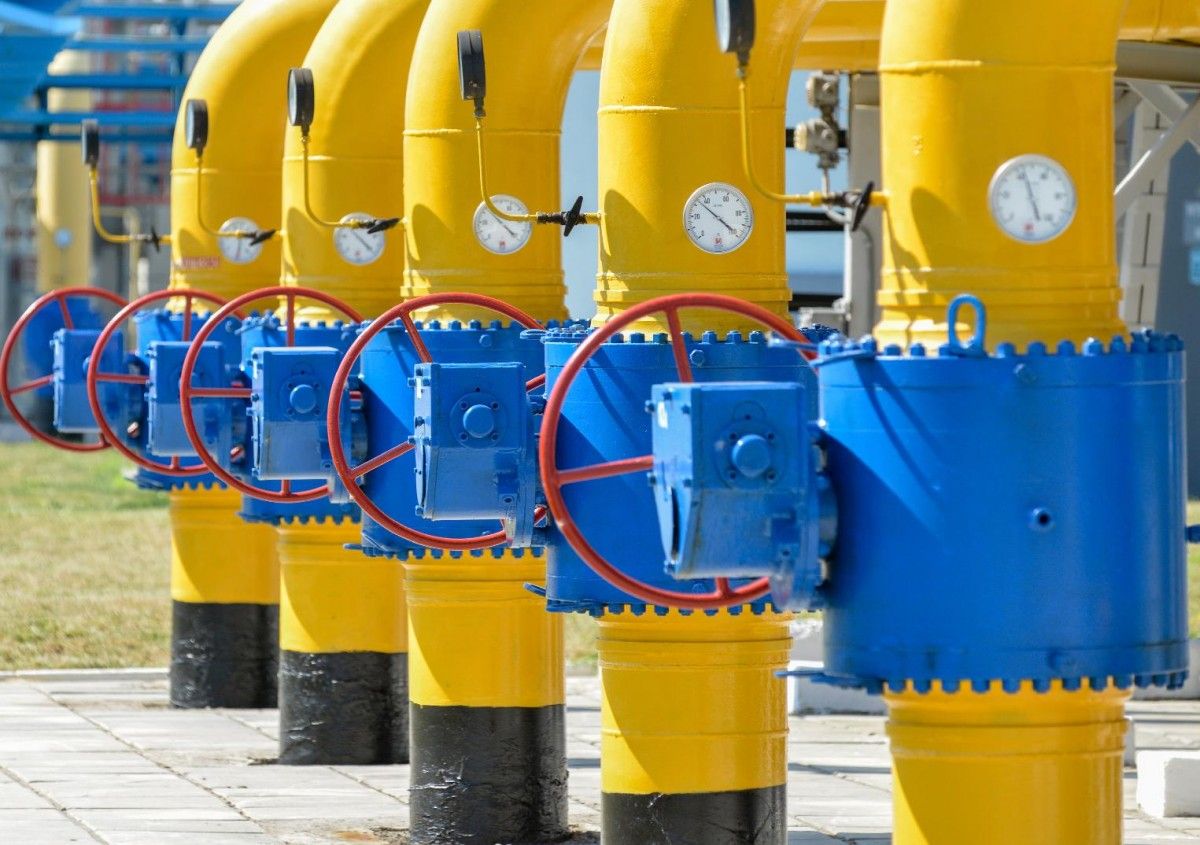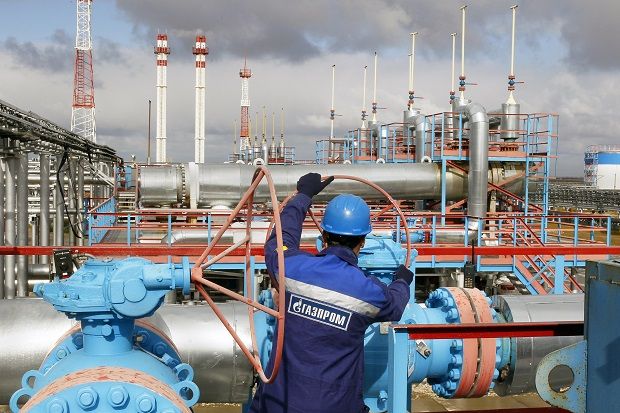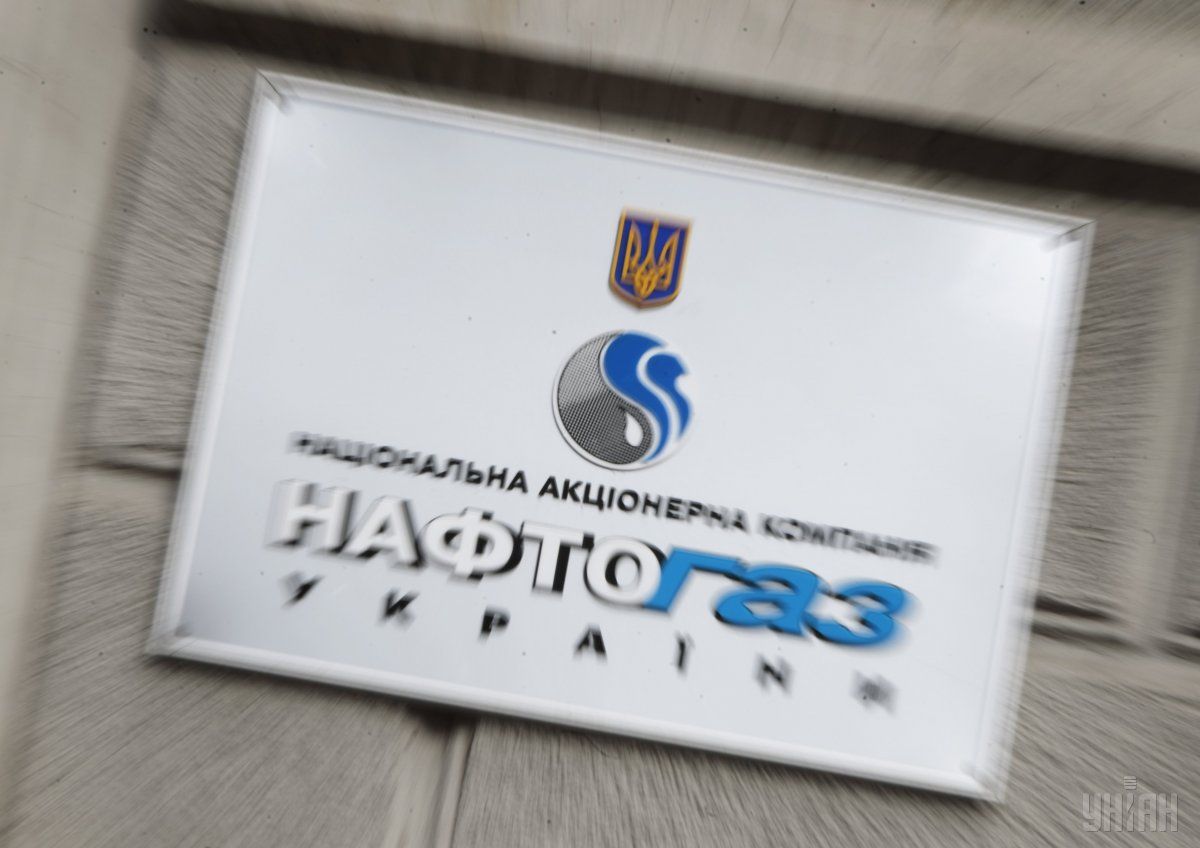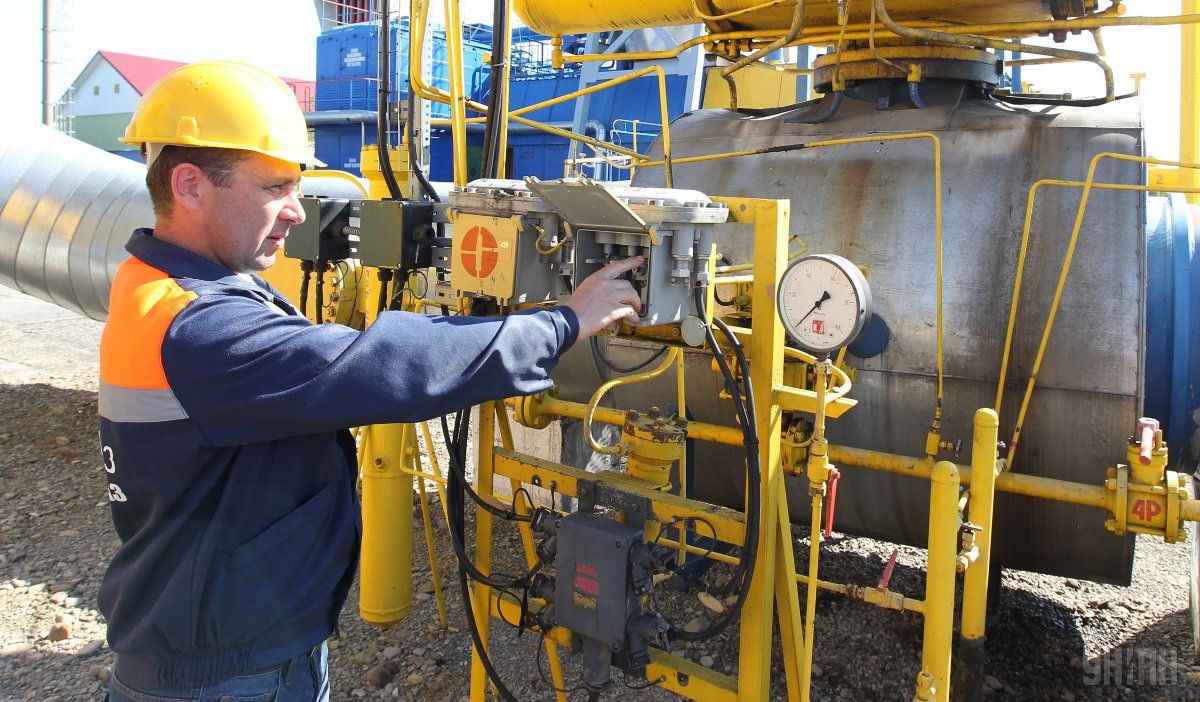
Transit risks of Ukraine's "gas" scandal
Ukraine has come close to its main energy goal - to retain in full its gas transit volumes after the current contract with Russia’s Gazprom expires. The main task is to transfer the points of gas acceptance to the country’s eastern border. The European Commission has practically given the go-ahead to the idea, at the same time setting certain conditions, which fully comply with Ukraine’s obligations under the Ukraine-EU Association Agreement. But there is a possibility of disruption of transit plans as a result of the actions of certain Ukrainian officials.
Having approached its goal as close as never before – that is, to retain in full its gas transit volumes after the completion of the contract with Gazprom in 2019 – and despite the likelihood of Russia's implementation of alternative pipelines bypassing Ukraine (Nord Stream-2 and TurkStream), Ukraine is now at risk to be left biting the dust.
It’s about plans to transfer the points of transit gas acceptance and transmission from the western border of Ukraine to its eastern borders. In fact, this would mean for Ukraine the end of any dependence on Gazprom in transit issues.
"If this happens, it is the buyer who will determine the transit route and the place of purchase. And then it will no longer matter, whether or not the Nord Stream-2 project is implemented. Judging by the EU's assurance of their interest in ensuring that our country remains the main transit state for Russian gas, Kyiv will be able to agree on this issue with European traders. This is an economic component, and our GTS by default is stronger than Russia’s costly projects, as the Ukrainian GTS has long been operating trouble-free and does not require huge investments, like, say, Nord Stream-2," said director of the Center for Energy Studies Oleksandr Kharchenko.
Today, the issue of signing a new gas transit contract between Gazprom and Naftogaz is in limbo. The current deal expires in 2019. By this time, Gazprom plans to have built two bypass pipelines - Nord Stream-2 and TurkStream, with an annual capacity of over 86 billion cubic meters of gas. Through Ukraine, Europe gets about 80 bcm of gas (max capacity of Ukraine’s GTS is 120 bcm annually).
Gazprom does not exclude that some minimum volumes of gas will continue flowing via Ukraine, amounting to a mere 10-15 bcm. For Ukraine, this means losing its status of the main gas transit vein to Europe and also losing some $2 billion a year.

Therefore, the transfer of gas acceptance points is of strategic importance for Ukraine. The country launched the initiative back in 2014. European Commission officials in their statements initially approved of the idea timidly. They said that the proposal was efficient, but it remained a corporate matter, meaning businesses must agree on the issue themselves. And this is when the dialogue stopped.
Among the main reasons for this, firstly, is that Russia’s categorical rejection of such changes has made its case. After all, Gazprom understands that they would lose control over gas transit, which is for the Russian state-owned monopoly a mechanism of effective pressure on buyer countries. Secondly, European companies saw certain risks in the innovation – today the responsibility for gas transit lies entirely with Gazprom, while in the case of transfer of acceptance points to the eastern border of Ukraine, all possible problems will fall on their shoulders.
But now the situation has changed. In their desire to restrict Russia in the European gas market, the European Commission put forward specific proposals regarding the preservation of gas transit through Ukraine, namely, the transfer of gas acceptance points.
The offers were voiced by Vice President of the European Commission on Energy Union Maros Shefcovic during the Yalta Economic Summit in Kyiv. He talked about the unbundling of the national oil and gas holding company, Naftogaz of Ukraine, including the withdrawal of Ukraine’s GTS from under its management, as well as the involvement of a European partner company in GTS management.
"In 2014, the Europeans specifically told us ‘no’, only veiling it with diplomatic language. Russia then was categorically against such a proposal. But now we have a chance to achieve the goal of bringing European operators to the management of the GTS, thus attracting EU’s interest to the issue of transferring gas acceptance points. If we fail to do so, we may lose our transit," Kharchenko said.
It would seem that it only remains to fulfill what’s mentioned above, which is not a novelty for Ukraine - it is in line with the Ukraine-EU Association Agreement in terms of the implementation of the Third Energy Package, as well as laid down in the law on the gas market, which is the basis of the energy sector reform (effective from October 1, 2015). But it has turned out to be much more complicated...
"Local" scuffles
In Ukraine, a scandal broke out recently, which can disrupt the country’s gas transit plans. On September 19, Naftogaz press service reported that the remaining independent members of the company’s Supervisory Board had resigned. They are Marcus Richards and Paul Warwick, who in 2016 had won in the competition for taking up top positions in the country's most important enterprises. They claim their decision is due to the Ukrainian government curtailing the reform process. Previously, ex-Deputy Minister of Economic Development Yulia Kovaliv left the post of the head of the Supervisory Board along with another member of the Supervisory Board, Charles Proctor. That is, in fact, there is no Supervisory Board in Naftogaz anymore as the only member remaining is ex-Minister of Energy Volodymyr Demchyshyn. Therefore, for the time being, the functions of the supervisory board will be performed by the company’s main shareholder, the Cabinet of Ministers.

U.S. and UK diplomats have immediately expressed concern over the issue. In their opinion, the latest developments could lead to the fact that the reform of the gas market will stall, which does not correspond to the commitments undertaken by the Ukrainian government.
Naftogaz CEO Andriy Kobolev has outlined the likely outcome of this row. According to Kobolev, the resignation of independent members of the supervisory board creates risks, in particular, for further obtaining by the holding of cheap loans from international banks, as well as for preserving gas transit via the territory of Ukraine after the current contract with Gazprom expires.
Kharchenko also believes that the scandal surrounding Naftogaz may hinder Ukraine’s gas transit goal - to move gas acceptance points to the country’s eastern border and, accordingly, to minimize the likelihood of Russia's implementation of the Nord Stream-2 project.
"Independent members of the Supervisory Board of Naftogaz, who resigned, have publicly verbalized a set of problems. Now all the international partners of Ukraine - from the IMF and the EBRD to the European Energy Community and the British government – are unanimous in saying that reform in the gas market has completely failed. Such government actions have led to a drop in the country’s image, while Ukraine is losing chances to get more external financing, despite the successful placement of Eurobonds. In addition, under these conditions there is no way a consortium could be created to manage the GTS. That is, the chance may be lost to properly remove the GTS from under Naftogaz [control] to bring the market in line with European principles. And without this, solving the main task of transit - to transfer gas acceptance points to the eastern border would be impossible," Kharchenko said.
According to the expert, for the transit to remain "alive", it is necessary to create a consortium based on the gas transportation system removed from under the Naftogaz control, but it is unlikely that European partners will be interested in cooperation in the current situation.
"To date, the government in the person of Deputy Prime Minister Volodymyr Kistion, his protégé, Deputy Minister of Energy Ihor Prokopiev, who was first removed from office on suspicion of corruption, but then immediately appointed deputy minister, and, by and large, [Energy] Minister Ihor Nasalik, who took a very a strange position, does everything to prevent this from happening. You can qualify their actions in different ways, for example, as unprofessionalism, but, as they say, not knowing the law does not absolve one from responsibility," the expert said.
In turn, director of energy programs at the Center for World Economy and International Relations of the National Academy of Sciences of Ukraine Valentyn Zemliansky believes that there is no correlation between the scandal and Ukraine’s transit plans.

"No matter whether Naftogaz has a supervisory board or not, we need to continue implementing the initiative to move gas acceptance points to our eastern border. These processes go in parallel lines and they are not interconnected. To achieve the goal, it is necessary to resolve the issue of Naftogaz unbundling and finally introduce the Third EU Energy Package in the country. And everything is ready to this end - the law has been adopted, as well as network codes, and the entire regulatory framework have been developed," the expert said.
He also stressed that, first of all, it is necessary to remove from under the Naftogaz management the trunk gas pipeline, with the involvement of European partners. "But there is still no specific western company that is ready for cooperation in this area. That's what we need to work on. Meanwhile, the scandal is a kind of formal reason to disrupt the process," said Zemliansky.
What to expect from Russia
As for Russia's position, it's not worth hoping for them easily agreeing on a change in the scheme of gas acceptance points.
However, Gazprom itself tried to implement such a scheme, but only for Nord Stream. For example, participants in the project E.On (now Uniper) and GDF Suez (now Engie) signed new contracts, where the point of delivery was changed to the border of Germany (Greifswald) or France. But those changes occurred before the entry into force of the EU’s Third Energy Package. Since then, the European Commission has insisted on the rejection of long-term contracts on gas supply.
And in early 2017, Gazprom began negotiations with Italy’s Eni on gas supplies through TurkStream, which could significantly change the geography of gas acceptance points.
Experts do not exclude the possibility that the Russian monopoly may fall for the change in the transit scheme with respect to Ukraine, while delaying the issue’s consideration until the decision of the Stockholm Arbitration on gas transit is handed down. The verdict can be issued as early as November 2017.
Thus, there’s still time until 2020 to complete the transfer of gas acceptance points to the eastern border of Ukraine because the EU shows interest in the matter. It is just necessary to clean the mess in the country’s energy sphere.
Prime Minister Volodymyr Groysman assured that the composition of the supervisory board of Naftogaz will be updated together with international partners as soon as possible. He also guaranteed continued and accelerated "gas" reform.
If promises are fulfilled, we can only hope for the determination of Ukraine’s European partners to support the country’s gas transit plans. However, at the time of this publication, the European Commission has refused at UNIAN’s request to provide a comment regarding the possibility of transferring gas acceptance points to Ukraine’s eastern border.
Nana Chornaya

